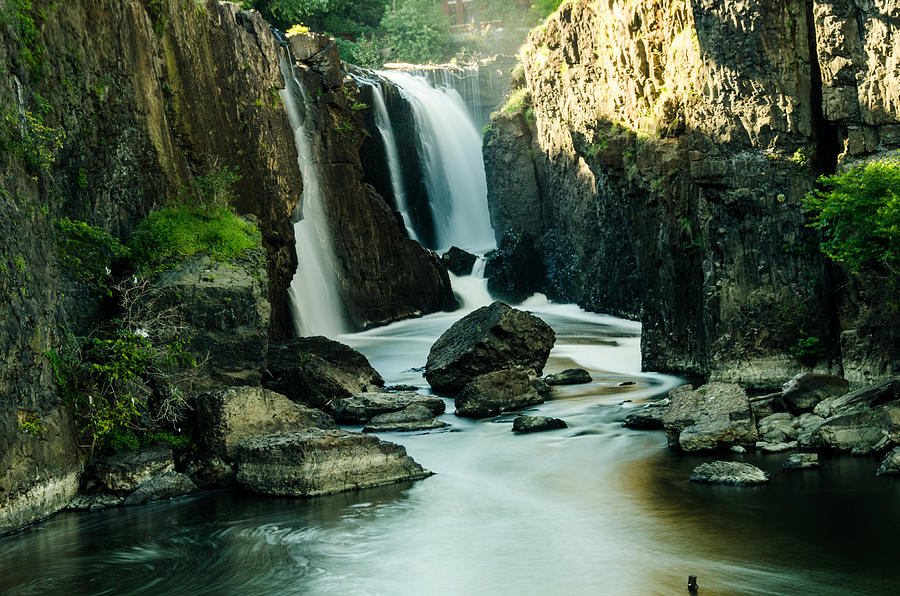

Laura is a Lucy of far-fetched schemes and well-meaning, love-filled flops. Her talkative enthusiasm meshes with his phlegmatic skepticism. She’s also a bundle of enthusiasm for his poetry, encouraging him to write, asking him about his writing, urging him to read his work aloud to her, suggesting that he make a copy of his notebook of poems for safekeeping and even for publication. She fills Paterson’s lunchbox, decorating it with photographs of herself and with icons of poetry, and cooks dinner for them, experimenting with recipes of her own devising that he chokes down uncomplainingly while she takes his diffident calm as a compliment. Her long-term plan involves starting a cupcake business, and she dreams of cupcake-baking making them “rich.” She also dreams of becoming a country-music star she’s no musician, but she must have a black-and-white “harlequin” guitar, which comes with an instructional DVD by its creator, named Esteban (a recurring unseen presence), and she spends several hundred dollars on the guitar and its accoutrements despite Paterson’s uncertainty about the expense. She paints the walls of the house, the curtains, the cabinets, and the shower curtain with designs in black and white she dresses in black and white and looks at herself in the mirror as she tries on black-and-white accessories. She’s a butterfly of unburdened delight and impulsive activity. Paterson is the family wage-earner Laura spends her days on style. Paterson wakes up in bed beside his partner, Laura (Golshifteh Farahani) has a moment with her goes to work comes home (fixing the tilted mailbox as he walks up the driveway) dines and talks with Laura takes the dog, Marvin, for a walk and stops off for a beer and some chat at his neighborhood bar.
MOVIE SCENE PATERSON WATERFALL MOVIE
The movie’s very being is based in echoes and patterns, and that’s how the movie is constructed-in seven episodes that are virtual stanzas, each for a day of the week, with the five working days offering the same set yet slightly varied structure, emphasized with recurring shots, actions, locations, characters, themes, and the two days of the weekend offering echoing actions of their own. Jarmusch has gone a step further-he has made a movie that’s filled with poetry and that is a poem in itself. Talking in 1983 with a great classicist, I lamented the absence of poetry from public life he responded that it was the fault of filmmakers-that if a filmmaker put poetry into the script of a major motion picture, poetry would become popular again. There’s also a poem by William Carlos Williams, “ This Is Just To Say,” the one about the plums, that’s recited by Paterson in the course of the action.

Jarmusch creates superbly lyrical sequences of shifting multiple exposures, with Driver’s voice reciting Paterson’s (rather, Padgett’s) poems while they’re superimposed on the screen in Paterson’s handwriting. The poems that Paterson thinks and writes are actually by Ron Padgett (who’s cited in the end credits), and the film is filled with them.
MOVIE SCENE PATERSON WATERFALL DRIVER
Paterson the driver writes poetry he thinks poetry while walking to and from the depot, he writes in his notebook (his so-called secret notebook) at the wheel of his bus while waiting for his shift to begin he writes during his lunch hour while sitting on a bench beside his favorite place, the Great Falls of the Passaic River, with his copy of Frank O’Hara’s “Lunch Poems” beside his lunchbox he writes at his cramped desk in his basement, surrounded by building supplies and hardware. “Paterson,” the story of a poet and his poems, is set in Paterson, New Jersey, and its protagonist is a bus driver named Paterson, who is played by Adam Driver. He does so with his wry and tamped-down tone, his loping rhythms, his puckishly frontal compositions, his worn-in sense of design, the winking terseness of his dialogue-and the loving precision of his documentary-rooted observations, which anchor his microcosmic cinematic world, with its austerely whimsical passions, in the world at large.

Jim Jarmusch is among the rarest and most precious filmmakers of our time, because, at his best-as he is in his new film, “Paterson”-he conjures an entire world of his own imagination.


 0 kommentar(er)
0 kommentar(er)
